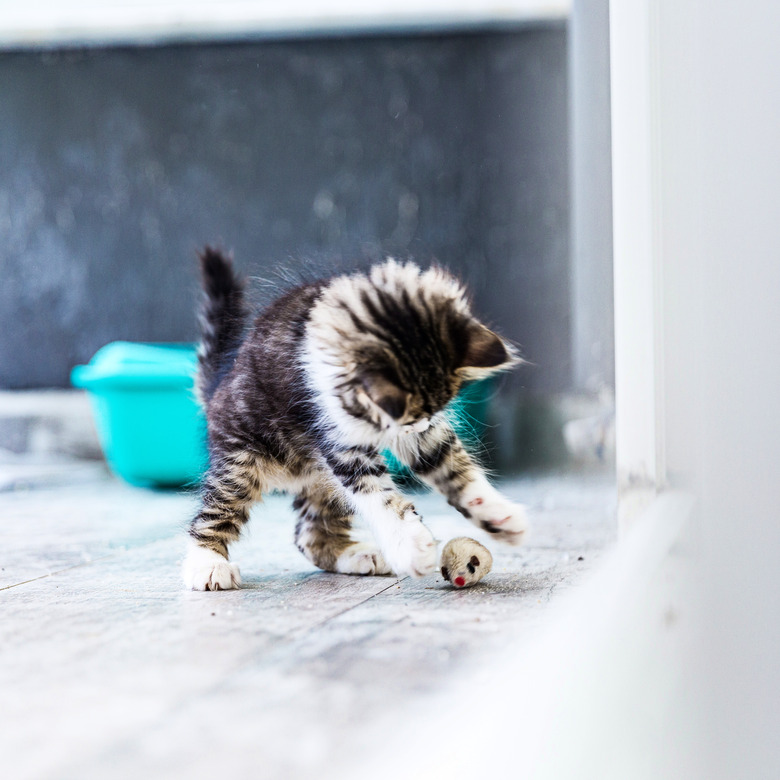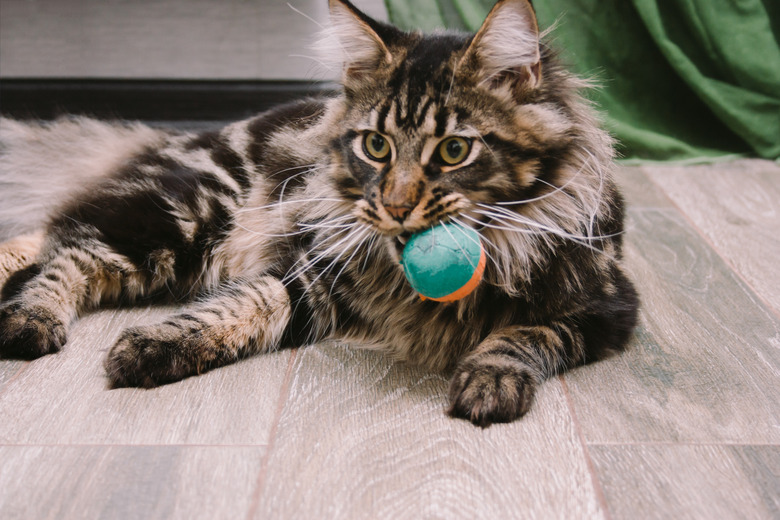Why Does My Cat Bring Toys Into The Litter Box?
"Why does my kitten play in the litter box?" Cats are enigmatic creatures. Their behaviors can be both baffling and hilarious, but with a little extra digging, it is possible to find a root cause for most of the strange things your cat does. If you've noticed your cat has a tendency to bury his toys or other things that aren't waste in his litter box, there are reasons for this seemingly strange behavior.
Most are not cause for concern, but any dramatic behavior changes might be a sign of something not so great going on such as new stressors in your cat's life or even health issues.
Cats' relationship with litter boxes
Cats' relationship with litter boxes
Cats that use litter boxes will have a very special relationship with their box. While to us the litter box seems like a particularly odorous and messy toilet, to your cat it is the repository for the things that smell the most like him.
In some ways, the litter box is his personal space for taking care of his needs and protecting himself. Cats bury their waste to hide their scent so as not to attract larger predators. The litter box can become the symbol of safety for your cat.
Many cats know instinctively that when they are placed in a litter box, it is with the purpose of doing their business. Kittens may need some extra training to know that their litter box is where they are supposed to go.
Once they get the hang of using the box, most cats don't look back. If your cat is peeing or pooping outside of their litter box, she might be trying to communicate with you. You might also ask yourself, "Why do cats hide their poop?" Perhaps the box is full or the litter needs to be changed. Maybe she's sick and is trying to get your attention. Litter boxes can be more than just a potty for your cat.
Ways that cats play
Ways that cats play
Just as instinct drives a cat's need to bury their waste, instinct also helps determine the ways that cats like to play. When you take a look at your cat's favorite toys, what do you notice? Many cat toys are designed to engage a cat's predatory instinct and will even look like the kinds of small rodents or birds cats would chase for food in the wild.
The types of games cats enjoy to play with their favorite humans often mimic the actions of a predator. Chasing toy mice, or batting a ball around mimics the act of tiring out small prey. Jumping for a feather toy on a string is similar to catching birds or other flying things. Even playing hide and seek or stalking you is practice for your small house predator.
Why put toys litter boxes?
Why put toys litter boxes?
Just as a cat buries his waste in the litter box to hide his scent, a cat might bury his food so that it too won't attract larger predators looking for a snack. So if a toy is a stand-in for your cat's "prey," it is possible that she is hiding it in her litter box so that a large predator doesn't come and steal it.
If your cat is hiding items of clothing or other things in her litter box, it could be a similar situation of trying to hide specific scents. Perhaps he is only trying to protect you by burying your socks because he wants to make sure your scent is not going to attract anything mean and nasty. Cats have a pretty incredible sense of smell that can pick up nuances and information that we humans can only imagine.
Behavioral changes in cats
Behavioral changes in cats
If your cat has been an impeccable litter box user, and then all of a sudden started burying toys and other items, it is possible that she is trying to tell you something and you just aren't getting it. Dramatic behavior changes can signal that something is wrong. Whether it is a health issue or simply that she doesn't like her new food, your cat will do whatever it takes to let you know how she feels.
Try keeping a log of when and what your cat is burying. Is it a specific toy? Does it happen only after dinner? What is new in your household that might be upsetting your cat? If you have trouble pinpointing a reason, or if your cat is having additional behavioral changes, book an appointment for a checkup with the vet.

